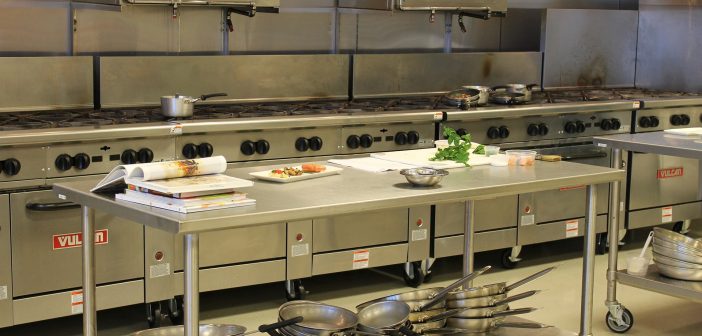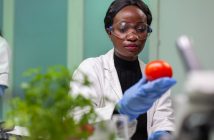The food industry is constantly evolving to keep up with rapidly changing consumer preferences. With the growing emphasis on eating local/organic foods, veganism, entomophagy and portion-control, there is no dearth of market opportunities for food startups. However, food entrepreneurs face numerous challenges while taking their product to the market. Some of these challenges include being able to afford a commercial kitchen space, maintaining a high level of hygiene, renting equipment, hiring a food scientist, and of course, funding the business, especially in the initial stages. Food incubator and accelerators are helping these startups and small businesses grow by providing them with capital investment, well-equipped commercial kitchen spaces, access to networking classes, packaging and distribution support, and even consulting services. Here are some food incubator that are helping startups realize their business ideas.
- Food-X
Food-X is a food innovation accelerator, based in New York, that helps startups take their products and services to the market quickly. They provide upto $50k in capital, hold training workshops and programs, provide access to a large network of food companies and mentors, and also host a coworking kitchen space. They’ve launched an impressive 1000+ founders till date across a wide range of products and services, from yogurt-makers to smoothie delivery services.
- Chobani Incubator
Also based in New York, the Chobani incubator runs a four-month program for food startups, including working together on-site with its team members. The program covers a comprehensive list of topics including building a sustainable business and nutrition/food labelling. The incubator provides a $25,000 grant and also covers hotel and travel expenses. They accept any US-based company and have recently started an Australia program. - The Food Foundry
The Food Foundry is a UK-based food accelerator that helps startups conceptualize their ideas, connects them to local commercial kitchens (including vegan and free-from), provides access to specialist mentors, and even helps entrepreneurs rent local shelf space. They’ve helped launch an Argentinian peanut butter brand and an American baking company (both based in London). - TERRA accelerator
TERRA is designed to be an ongoing innovation platform that brings together food startups and corporations to fuel cross-industry innovation. Based in San Francisco, it combines RocketSpace’s global tech ecosystem and startup network with Rabobank’s food and agribusiness expertise. They focus on startups that are seed funded and ready to launch in both foodtech and agtech, provide access to a commercial kitchen, and offer mentorship during their 8-week program. - Union Kitchen
Union Kitchen is a Washington-based food and beverage business accelerator with a specific focus on local companies that make consumer packaged products such as nuts, cookies, juice, popcorn, chips, and frozen meals. They help entrepreneurs through the entire process from concept to launch and further from local saturation to national expansion. Their accelerator program averages at 1.4 years and provides access to commercial kitchens, and to a distribution network of nearly 200 local and national retailers. - H-Farm
With partners like Nestle and Carlsberg, the H-Farm (based in Italy) offers a 4-month accelerator program in partnership with Cisco. Startups connect with industries to work out possible pilots, business development agreements, and investments. They have access to an international network of business leaders and mentors, a dedicated team, and €20.000 in cash, with the possibility of further funding. Startups working on food delivery logistics, supply chain, food safety, and more, are invited to apply. - Canvas by Marriot
Canvas is a hotel-based concept lab from Marriot, which helps food entrepreneurs incubate their ideas in one of their hotels, get funded, and receive professional advice from Marriot. Specifically targetted at those who want to run their own bar or kitchen, they allow entrepreneurs to test their ideas and get it off the ground. - Accel Foods
Accel Foods, based in New York, is an incubator that invests in innovative food and beverage companies with a market opportunity of $100M and beyond. They have 30 portfolio companies, and focus on natural and organic brands. One of their more well-known brands is Exo, which makes protein bars from cricket flour. - Good Food Accelerator
This Chicago-based accelerator runs a 6-month Fellowship program during which Fellows can access capital to launch and expand their businesses, mentoring and support. Backed by FamilyFarmed, which has helped businesses raise more than $38 million, the program provides free workspace and resources, and focusses on local and organic foods. - Land O’Lakes Dairy Accelerator
The Land O’Lakes Dairy Accelerator fosters innovation in the dairy industry, and runs a 3-month program in Minnesota that provides support and mentorship to dairy food entrepreneurs. Participants have access to seminars on a variety of topics and can present their ideas to the leaders experts at the end of the program. Some of the companies that were selected for the 2017 batch include one making artisan cheese and another making protein snack bars.
Also worthy of a mention is The Good Kitchen, a London-based social enterprise accelerator that supports entrepreneurs tackling food poverty all over the world. Support is in the form of investments, bespoke training and access to mentors and industry experts. They’ve helped launch startups in the UK, Turkey and Colombia.
Most of the food incubator in the list above did not exist ten years ago. Through these platforms and programs, food startups are now being able to access the support and funding they need to grow and establish themselves in the highly competitive market. However, many startups often need help with one specific project or may have a one-time requirement for a consultant. Consulting freelance food scientists is a quick and affordable way of getting expert assistance with product development, optimizing shelf life, nutrition labeling, and more.
The global food tech market is expected to grow over $250.43 billion by 2022. Through business accelerators, food startups can get help from investors and mentors, form partnerships with corporates, and tap into a network that will help them meet the rising demand for local, organic, innovative, and natural food products.







